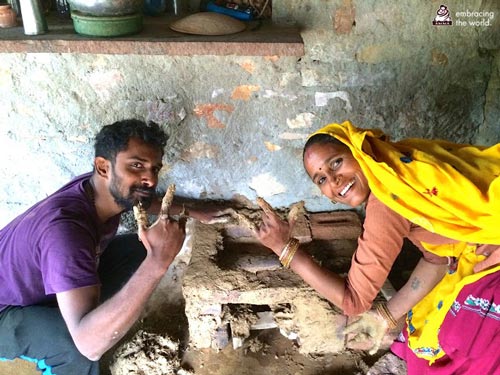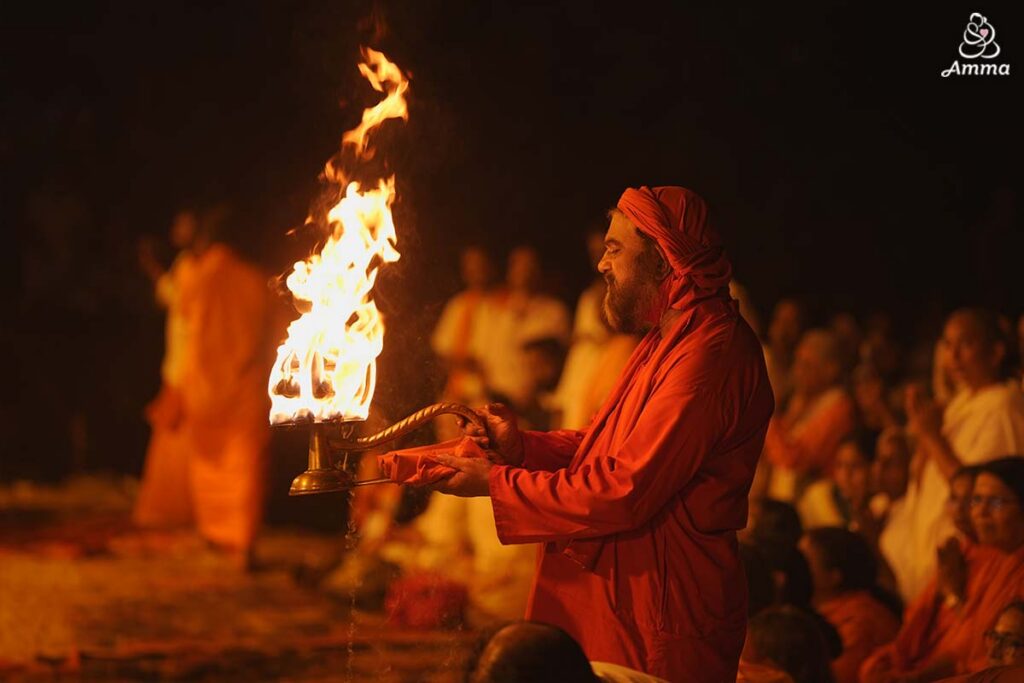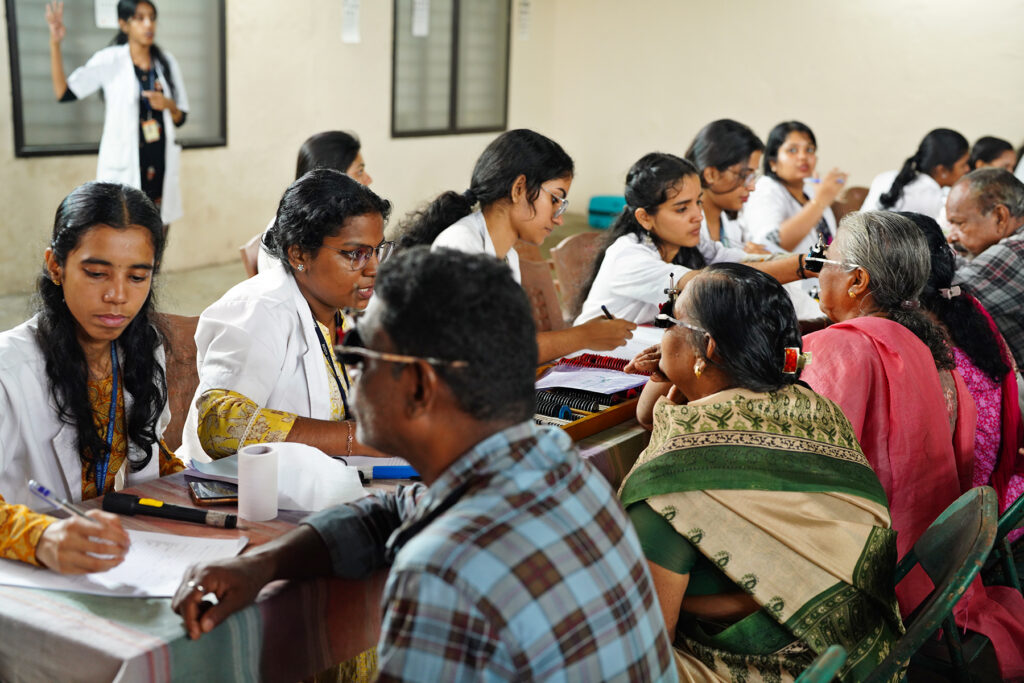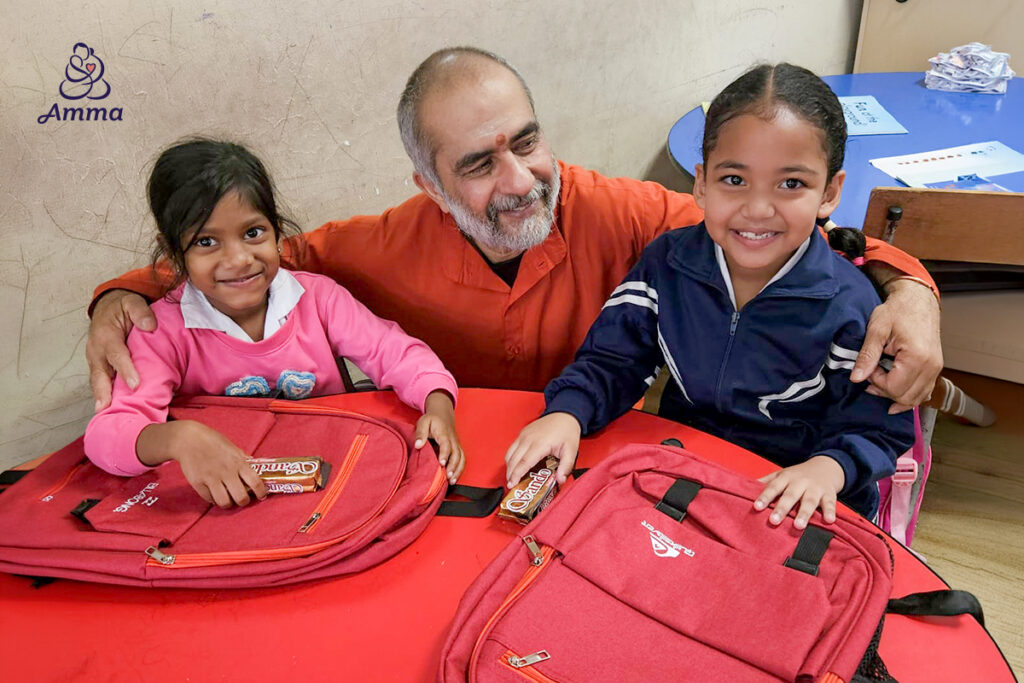Daybreak in a small village in Northern India. As the morning sun rises, chai starts to simmer on a quaint stove fueled with a cow-dung patty. Smoke fills the kitchen as the family eases itself into another day. A romantic morning of village life? Seemingly so. But, as AMMACHI Labs has begun to teach villagers across India, this all-too-familiar village scene has dire consequences.
While air pollution is a commonly recognized source for health problems, few realize that indoor pollution causes massive respiratory problems throughout rural India. The WHO recently stated that 4.3 million people die every year because of smoke from cooking. To put that number into perspective, it’s more than AIDS, malaria, and tuberculosis, combined.
Throughout most of rural India fuel wood is uncommon and expensive, and cow dung comprises roughly 90% of the total fuel consumption. It is common to see Indian women collecting cow dung, mixing it with rice husk and drying the mixture in neat patties on walls, fences or trees. Although this is a great adaptation to limited resources, it’s a low heat fuel and causes kitchens to fill up with thick smoke. An average woman may spend three hours breathing in this smoke as she prepares the family meals, unknowingly poisoning herself.
Amrita SeRVe set out to tackle this problem. Simply implementing highly engineered and costly cook-stoves was not an immediate solution. These would be unimaginably expensive for villagers and would likely go unfixed once they broke down. So another solution – one that would eliminate smoke indoors and cost nothing– needed to be found. Equally important was finding a route that would teach and empower villagers to create and sustain their own solution. Thus came the chula project.
A chulha is a smokeless stove and a low-tech solution for indoor cooking. Chulhas are made entirely from local materials and can still use indigenous biomass as fuel. Formed with mud, chulha are reinforced with coconut husk or dried grass. After drying this material becomes as strong as concrete. In the west, this mixture is known as cob and is increasingly being used to build even houses. Amrita SeRVe has found that these smokeless stoves not only provide a better cooking environment, but are easy to use and maintain.
As part of the 101 Self Reliant Villages First, several months were first spent perfecting a chulha. Then, AMMACHI Labs began teaching rural women how to make their own low-smoke stoves. Twenty-one health workers just completed a one month Health Worker Training Course in Amritapuri. The group was invited from villages in Bihar, Chattisgarh, Rajasthan and Uttarakhand. During the course, they learned skills that will help educate their rural communities on health related issues.
After spending an inspiring month in Amritapuri learning skills and participating in daily ashram life, these health workers returned to their villages. Equipped with knowledge to share, they started teaching their communities to construct these chulhas.
It is the goal of Amrita SeRVe to enable every household to have a smokeless chulha. Yet through this effort, not only will the 101 adopted villages have a new way of cooking. Those trained by Amrita SeRVe will also help those in neighboring villages build chulhas as well. Thus through empowerment and training, Amrita SerVe aims to clear toxic smoke throughout rural India.





